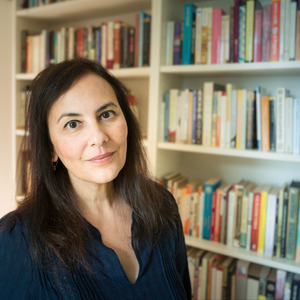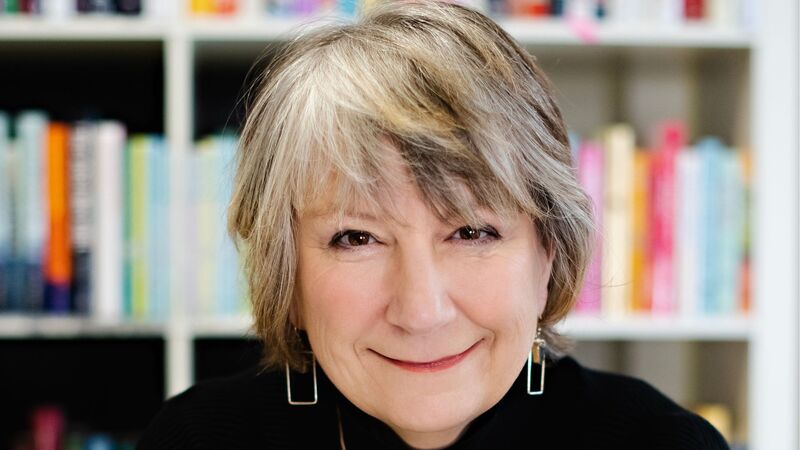You are viewing your 1 free article this month. Login to read more articles.
We must fight for the freedom to write
On World Press Freedom Day, a Kuwaiti author explains why writing means so much to her.
In 2013, I was already a year into writing my novel, An Unlasting Home, when Kuwait’s parliament passed an amendment to a law against blasphemy, making it a capital crime. Capital punishment had not been common practice in Kuwait, so this decision came as a shock. Blasphemy entailed insulting God, the Quran or the prophet, but the specifics of the law were vague enough to heighten fear.
The amendment included a stipulation that the death penalty would apply only if the accused stood by their "blasphemous statement" before a judge. However, even if the accused recanted, they could still get up to five years in prison and a $35,000 fine. Ultimately the amendment was rejected by the Council of Ministers, but the unease it generated lingered and altered the course of my novel. An Unlasting Home imagines what life in Kuwait would have been like had the amendment not been overturned.
Blasphemer in fiction
The protagonist, Sara Al-Ameed, is, like me, a professor at Kuwait University. She teaches philosophy, while I teach English and comparative literature. Sara is accused of blasphemy by a student in one of her classes and faces the death penalty if found guilty. I have never faced a similar accusation; but in an eerie case of life imitating art, in 2016 a philosophy professor at Kuwait University was accused of blasphemy – although not by a student. Thankfully by then blasphemy was no longer considered a capital offense, and the case against the professor was dismissed. Nonetheless, a blasphemy law – among other laws that restrict freedom of expression – remains firmly in place, and writers of fiction, university professors, journalists, activists, ordinary citizens and residents live and work under its shadow. The punishment may no longer be death, but the possibility of imprisonment and/or fines continues to intimidate.
I write fiction in Kuwait exactly as I would if I were writing anywhere else; to do otherwise would be to abdicate its special powers
In 2018, four years after it was published, my short story collection, The Hidden Light of Objects, was banned in Kuwait. In the five years leading up to that point, over 4,000 books had been banned by an obscure censorship committee operating out of the Ministry of Information. This despite articles in Kuwait’s Constitution guaranteeing freedom of opinion and expression (although always restricted by the wily caveat: "In accordance with the conditions specified by law").
In 2020, thanks to the activism and pressure of concerned writers and citizens, the Kuwaiti parliament voted to stop the Ministry of Information from banning books. Currently, for a book to be banned, an individual complaint must go through the courts on a case-by-case basis. This slows down the pace of censorship and places the burden of effort upon the complainant rather than on the author.
Still, book publishers and importers can be taken to court for publishing or importing "offensive" material; this potential threat of litigation means that they become reluctant to publish or supply "risky" books. At least one local bookshop has said that they would prefer not to stock An Unlasting Home, citing precisely this cause*. An Arabic translation of The Hidden Light of Objects has been rejected by a prominent publishing house in Kuwait for similar reasons.
Writing towards freedom
My job as a writer is to write, which is what I do, without giving much thought to context or consequence. I write fiction in Kuwait exactly as I would if I were writing anywhere else; to do otherwise would be to abdicate its special powers. Fiction wants to invent and experiment, to somersault and spark. Sometimes it wants to be rude, even offensive, because in certain scenarios, for specific characters or plotlines, that is what is called for. To put the brakes on writing is the real offence, and I would never allow fear to let that happen.
But what is true for me is not necessarily true for all writers everywhere, especially not in places where death might be a penalty for writing that breaks the rules. If blasphemy were still a capital crime in Kuwait, if the threat of death, my own or those I love, were palpable and quotidian, would I be so brave? I hope I never have to answer that.
I also write under the cover of English. My books are published by American and British publishers, not Kuwaiti ones. In Kuwait, they are distributed by niche booksellers rather than large bookshops for reasons already mentioned. Because they have not been translated into Arabic, they fly under the radar. I am ambivalent about this state of affairs. On the one hand, I enjoy belonging to a talented group of Kuwaiti and Arab writers who write in English, whose readership is generally enthusiastic in part because we share a minor language in an Arabic-speaking majority. On the other hand, I would like to be included in the circle of Arabic literature. Opening myself up to a wider, Arabic-speaking audience might test my courage, but it would not change my unwavering sense that a writer must write anyway, despite and against fear, always towards freedom.
Statement from the publisher: We can confirm that a leading bookseller in Kuwait has told us that An Unlasting Home would most likely be banned, partly because the censor would pick up on the word "blasphemy" on the back cover of the book. The bookseller states that "the censor has made it clear they don’t even want us to submit titles if we know it goes against the regulations", thereby placing the onus and risk upon the bookseller, whose only option then becomes self-censorship to protect their livelihood and existence.


















